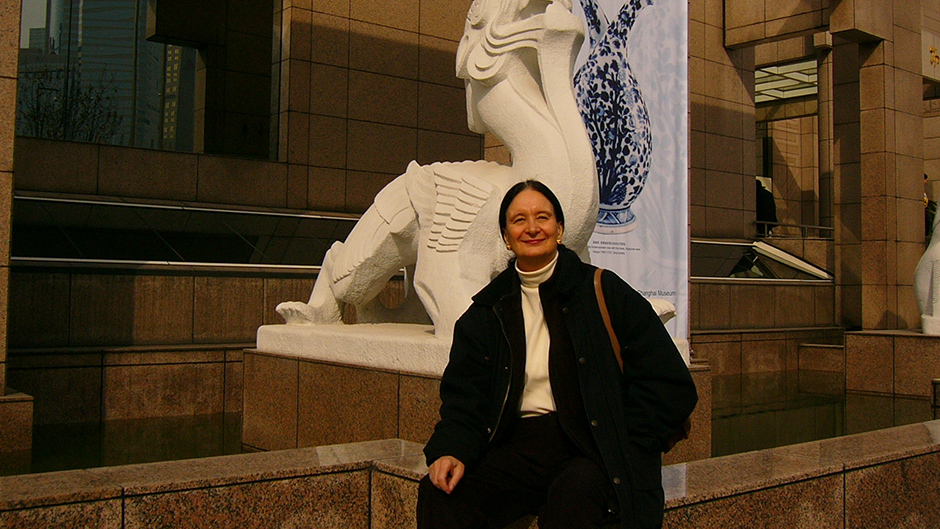Professor Susan Haack's work has appeared in 14 languages, and she is invited to lecture around the world. In May 2014, when she gave her 600th external lecture, her hosts in the Faulty of Law in the Federal University of Rio Grande do Sul, Brazil surprised her with a commemorative plaque.
How did this all begin, and how did it snowball?
SH: In the 1970s, as a philosophy professor in England, I was invited to lecture at conferences and at other universities in the U.K., then from time to time in Europe, and then in Canada, Australia, and South Africa. By now, as professor of philosophy and of law at UM, I have added many lectures at law schools and legal conferences, many visits to Latin America, two lecture tours in China, and conferences, universities, etc., all over Europe.
How many countries have you lectured in? What do you lecture on? How do you present your talks? How many languages do you speak?
SH: At a quick count, 27: Australia, Belgium, Brazil, Canada, Chile, China, Colombia, Denmark, Finland, France, Germany, Greece, Israel, Italy, Mexico, the Netherlands, Norway, Poland, Portugal, Romania, South Africa, Slovakia, Spain, Sweden, Switzerland, the U.K., and the U.S.; and later this year I'll visit Uruguay and Peru for the first time. In case you're wondering, for many years now all my expenses have been paid by my hosts, and I haven't taken a dime of travel money from any UM source.
Early on, my lectures were mostly in philosophy of logic and language, epistemology, metaphysics, pragmatism, etc.; now, I also lecture on evidence, especially scientific evidence, on church and state in the U.S., and on legal pragmatism.
Early on, I would read my paper aloud; now, I generally use PowerPoints—not boring slides with big chunks of text, but summary slides, pictures, cartoons, serving as prompts for my talk.
I'm bilingual in British English and American English, and my Spanish is improving; but I'm no great linguist: my French, once good, is now rusty, and I have just a little Portuguese and German. I can, however, say "thank you for your attention" in a lot of languages!
Can you tell us about some especially memorable visits?
SH: There have been so many! The lecture for the Institute of Science, Engineering, and Public Policy, with my name in lights outside the concert hall in Portland, Oregon, an audience of around 1,500, and Pavarotti's dressing room; Colombian pageantry, music, dance, and a great program of lectures at the annual congress on procedural law in Cartagena; the University of Valparaíso, where my Philosophy of Logics had been used as a text for thirty years, and I talked about how I would write the book today; interacting with working scientists at outfits like the Friedrich Miescher Institute in Basel, the Fondação Oswaldo Cruz in Rio, the Society of University Neurosurgeons; lecturing to an audience of Colombian judges and law professors in Bogotá ... .
And there have been so many memorable places—the Great Wall and the Forbidden City, of course; the Atlantic right outside my window in Salvador, the Pacific in Valparaíso, the room in Rio with views of both Ipanema and Cococabana beaches, baroque music in a baroque church in a tremendous thunderstorm in Kraków; gorgeous spring flowers in Bergen, glorious roses in the median strip on the road to Haifa ... .
Most of all, I value the new friends and new ideas I encounter everywhere—and the parting words I hear so often: "Please come back!"
How do you cope with all the travel?
SH: I take a fat novel—Bleak House kept me sane on one 24-hour trip to China.
Will you ever stop?
SH: Many of my invitations come out of the blue; I hope to keep going as long as they keep coming!

